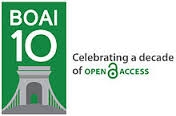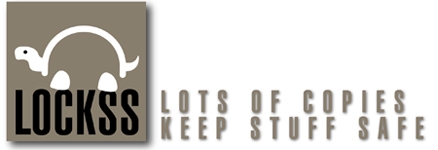- Focus and Scope
- Section Policies
- Peer Review Process
- Publication Frequency
- Open Access Policy
- Archiving
- License
- Plagiarism Policy
- Retraction
- Erratum and Corrigendum
- Direct Marketing
- Revenue Sources
- Advertising
- Ownership and Management
Focus and Scope
Edusains is a peer-reviewed journal published by the Center for Science Education. The journal focuses on the advancement of knowledge, theory, and practice in the field of natural science education, with particular emphasis on biology education, chemistry education, and physics education. It welcomes original research articles, literature reviews, and conceptual papers that explore:
Innovative teaching and learning strategies in science education
Development of teaching materials, media, and assessments in natural sciences
Integration of technology and digital tools in science classrooms
Science curriculum development and evaluation
Pedagogical content knowledge (PCK) in biology, chemistry, and physics
STEM education and interdisciplinary approaches in natural sciences
Scientific literacy, inquiry-based learning, and critical thinking in science learning
Teacher professional development and pre-service science teacher education
Sociocultural, ethical, and environmental aspects in science education
Edusains encourages contributions that address contemporary challenges, empirical findings, and theoretical advancements relevant to science education at various educational levels—from primary to higher education. Articles submitted should demonstrate a clear relevance to the development of science education and contribute to scholarly discourse in the field.
Section Policies
Artikel
Editorial
ICEMS
Editors- Fathiah Alatas
- Meiry Noor
- Nanda Saridewi
Semnas UNS
Semnas UIN Jakarta
Semnas UIN SGD Bandung
Peer Review Process
Edusains, published two times a year since 2014. Articles should be written in English and Indonesian, peer-reviewed journal, and specializes on education in the Science Education. All submitted papers are subject to double-blind review process.  The research article submitted to this online journal will be peer-reviewed by at least 2 (two) reviewers. Once a manuscript is submitted by an author through the online submission process, a journal editor screens the manuscript and decides whether or not to send it for full peer review. Only after clearing the initial screening is the manuscript sent to one or more peer reviewers. Finally, journal editors or the journal’s editorial board consider the peer reviewers’ reports and make the final decision to accept or reject the manuscript for publication. The accepted research articles will be available online following the journal peer-reviewing process. The procedure described by image below is the peer-review process used by Edusains.
Figure 1. The peer-review process
Â
Â
Publication Frequency
This journal is published between the months of June and December every year.
Open Access Policy
This journal provides immediate open access to its content on the principle that making research freely available to the public supports a greater global exchange of knowledge.
This journal is open access journal which means that all content is freely available without charge to users or / institution. Users are allowed to read, download, copy, distribute, print, search, or link to full text articles in this journal without asking prior permission from the publisher or author. This is in accordance with Budapest Open Access Initiative


Budapest Open Access Initiative
For various reasons, this kind of free and unrestricted online availability, which we will call open access, has so far been limited to small portions of the journal literature. But even in these limited collections, many different initiatives have shown that open access is economically feasible, that it gives readers extraordinary power to find and make use of relevant literature, and that it gives authors and their works vast and measurable new visibility, readership, and impact. To secure these benefits for all, we call on all interested institutions and individuals to help open up access to the rest of this literature and remove the barriers, especially the price barriers, that stand in the way. The more who join the effort to advance this cause, the sooner we will all enjoy the benefits of open access.
The literature that should be freely accessible online is that which scholars give to the world without expectation of payment. Primarily, this category encompasses their peer-reviewed journal articles, but it also includes any unreviewed preprints that they might wish to put online for comment or to alert colleagues to important research findings. There are many degrees and kinds of wider and easier access to this literature. By "open access" to this literature, we mean its free availability on the public internet, permitting any users to read, download, copy, distribute, print, search, or link to the full texts of these articles, crawl them for indexing, pass them as data to software, or use them for any other lawful purpose, without financial, legal, or technical barriers other than those inseparable from gaining access to the internet itself. The only constraint on reproduction and distribution, and the only role for copyright in this domain, should be to give authors control over the integrity of their work and the right to be properly acknowledged and cited.
While the peer-reviewed journal literature should be accessible online without cost to readers, it is not costless to produce. However, experiments show that the overall costs of providing open access to this literature are far lower than the costs of traditional forms of dissemination. With such an opportunity to save money and expand the scope of dissemination at the same time, there is today a strong incentive for professional associations, universities, libraries, foundations, and others to embrace open access as a means of advancing their missions. Achieving open access will require new cost recovery models and financing mechanisms, but the significantly lower overall cost of dissemination is a reason to be confident that the goal is attainable and not merely preferable or utopian.
To achieve open access to scholarly journal literature, we recommend two complementary strategies.
I. Self-Archiving: First, scholars need the tools and assistance to deposit their refereed journal articles in open electronic archives, a practice commonly called, self-archiving. When these archives conform to standards created by the Open Archives Initiative, then search engines and other tools can treat the separate archives as one. Users then need not know which archives exist or where they are located in order to find and make use of their contents.
II. Open-access Journals: Second, scholars need the means to launch a new generation of journals committed to open access, and to help existing journals that elect to make the transition to open access. Because journal articles should be disseminated as widely as possible, these new journals will no longer invoke copyright to restrict access to and use of the material they publish. Instead they will use copyright and other tools to ensure permanent open access to all the articles they publish. Because price is a barrier to access, these new journals will not charge subscription or access fees, and will turn to other methods for covering their expenses. There are many alternative sources of funds for this purpose, including the foundations and governments that fund research, the universities and laboratories that employ researchers, endowments set up by discipline or institution, friends of the cause of open access, profits from the sale of add-ons to the basic texts, funds freed up by the demise or cancellation of journals charging traditional subscription or access fees, or even contributions from the researchers themselves. There is no need to favor one of these solutions over the others for all disciplines or nations, and no need to stop looking for other, creative alternatives.
Archiving

License
EDUSAINS have CC-BY-SA or an equivalent license as the optimal license for the publication, distribution, use, and reuse of scholarly work.
In developing strategy and setting priorities, EDUSAINS recognize that free access is better than priced access, libre access is better than free access, and libre under CC-BY-SA or the equivalent is better than libre under more restrictive open licenses. We should achieve what we can when we can. We should not delay achieving free in order to achieve libre, and we should not stop with free when we can achieve libre.
EDUSAINS is licensed under aCreative Commons Attribution 4.0 International License
You are free to:
- Share ” copy and redistribute the material in any medium or format
- Adapt ” remix, transform, and build upon the material for any purpose, even commercially.
- The licensor cannot revoke these freedoms as long as you follow the license terms.
Plagiarism Policy
EDUSAINS recognizes that plagiarism is not acceptable for all author and therefore establishes the following policy stating specific actions (penalties) when plagiarism is identified by EDUSAINS anti-plagiarism software detection (we are using turnitin.com ) in an article that is submitted for publication. The article must below 20% of plagiarism
Retraction
The articles published in EDUSAINS will be considered to retract in the publication if:
1. It has a clear evidence that the findings are unreliable, either as a result of misconduct (e.g. data fabrication) or honest error (e.g. miscalculation or experimental error).
2. The findings have previously been published elsewhere without proper crossreferencing, permission or justification (i.e. cases of redundant publication).
3. It contains plagiarism.
4. It reports an unethical research.
The mechanism of retraction follows the Retraction Guidelines of Committee on Publication Ethics (COPE) which can be accessed at https://publicationethics.org/files/retraction%20guidelines.pdf.
Erratum and Corrigendum
Policy and best practice: errata & corrigenda
For the purposes of this document the term Editorencompasses all Editor title variations and is limited to those that have final acceptance responsibility.
Changes/Additions to accepted articles
All content of published articles are subject to the editorial review process, organized by and under the auspices of the Editor. Should the authors wish to add to their article after acceptance, they must submit a request the Editor and the new content will be reviewed.
- If the new material is additional to the accepted article, it must be submitted for peer review as a new manuscript, referring back to the original;
- If the new material should replace the original content of the accepted article, the Editor may consider the publication of an Erratum or a Corrigendum.
Erratum
An erratum refers to a correction of errors introduced to the article by the publisher.
All publisher-introduced changes are highlighted to the author at the proof stage and any errors are ideally identified by the author and corrected by the publisher before final publication.
Corrigendum
A corrigendum refers to a change to their article that the author wishes to publish at any time after acceptance. Authors should contact the Editor of the journal, who will determine the impact of the change and decide on the appropriate course of action. The Journal of Society and will only instigate a corrigendum to a published article after receiving approval and instructions from the Editor.
Direct Marketing
The EDUSAINS carries out marketing through the journal website and various social media. Our marketing process unobtrusive.
Revenue Sources
The EDUSAINS regularly publishes articles which are funded from funds from the Faculty of Educational sciences, UIN (State Islamic University) Syarif Hidayatullah Jakarta
Advertising
The EDUSAINS does not provide or offer services related to advertising, publishing and education.
Ownership and Management
The EDUSAINS is owned by ‘Faculty of Educational sciences, UIN (State Islamic University) Syarif Hidayatullah Jakarta’. The journal is managed by a dedicated team of staff under the guidance of the editorial and advisory board. For more information - On the editorial board, please visit https://journal.uinjkt.ac.id/index.php/edusains/about/editorialTeam

